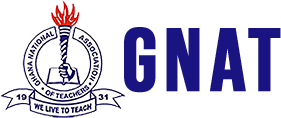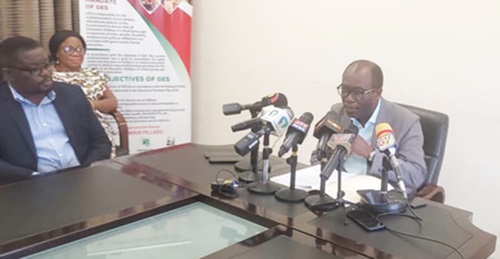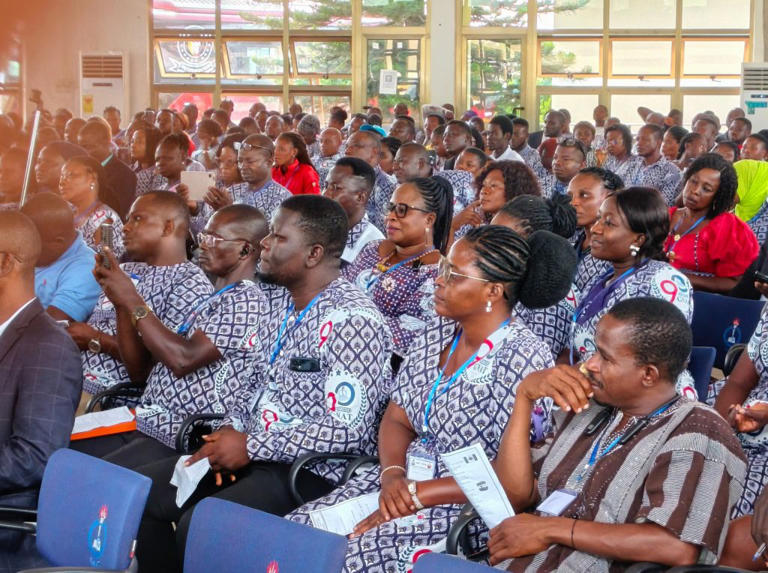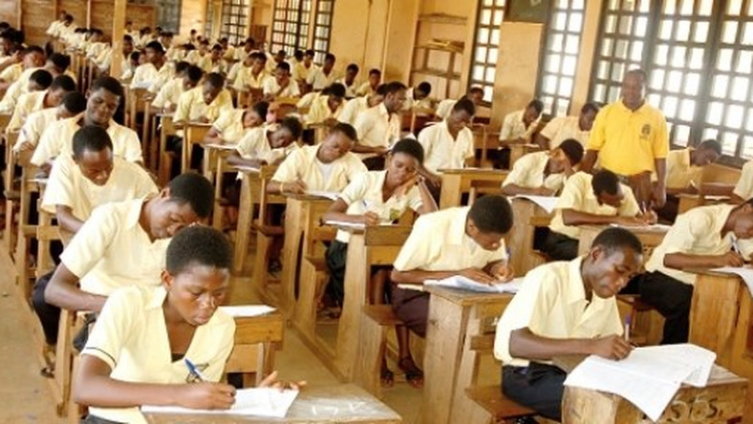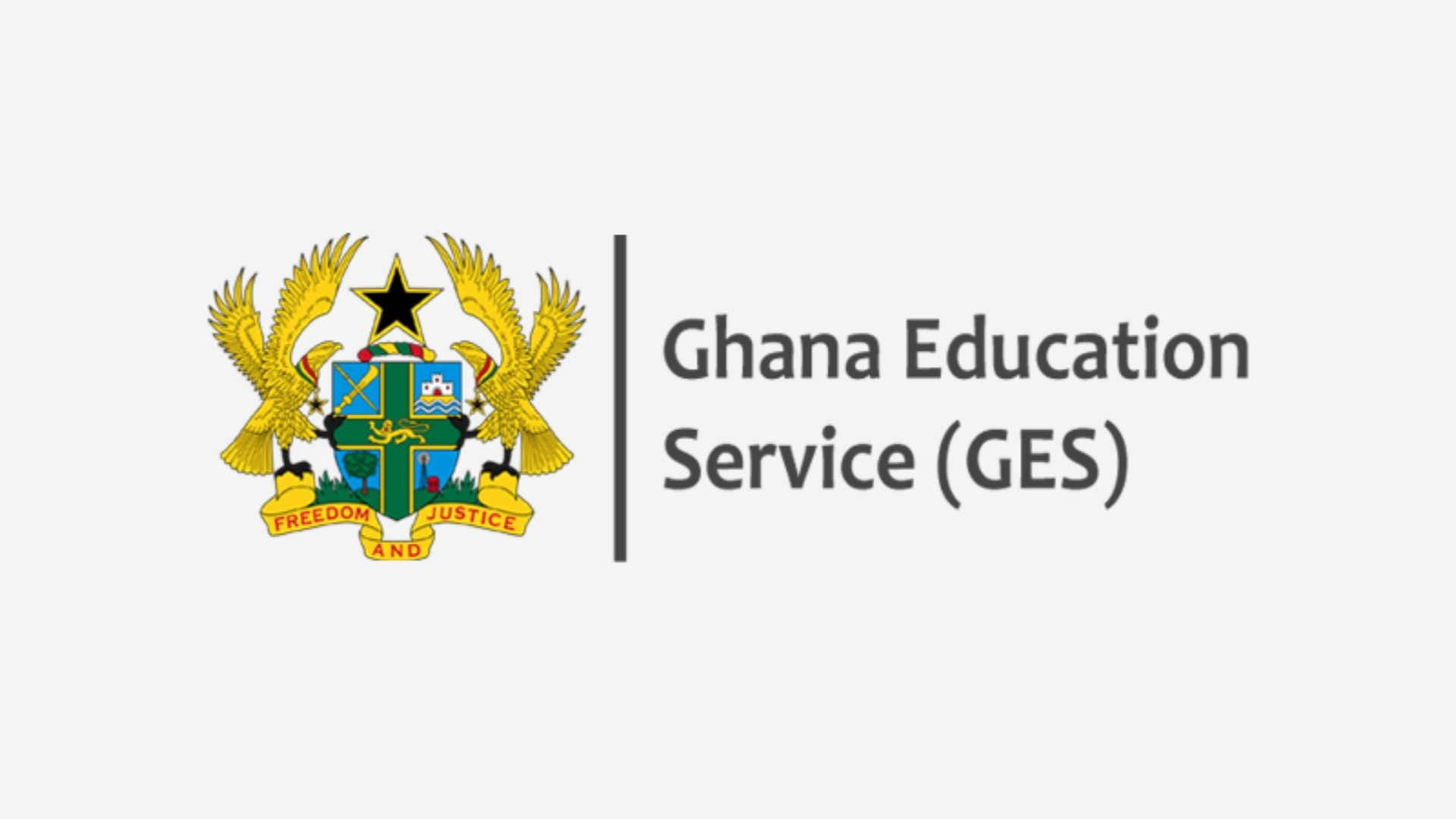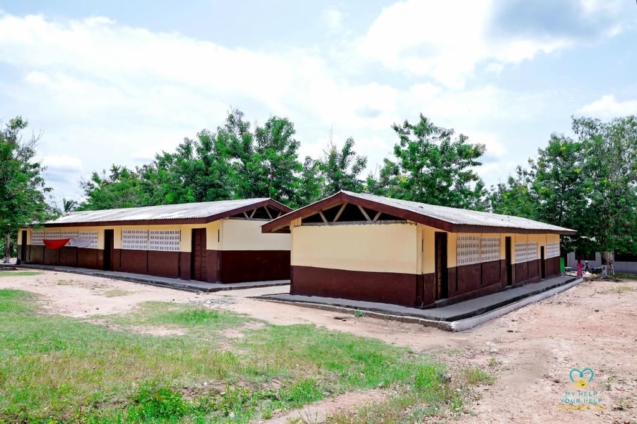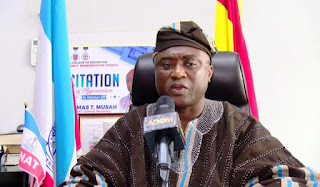The Ghana Education Service (GES) has warned that any supervisor or invigilator caught engaging in examination malpractice in this year's West African Senior School Certificate Examination for School Candidates (WASSCE-SC) will be dismissed.
The GES Council had given the service the power to dismiss any supervisor or invigilator found to have assisted candidates to cheat.
The GES, therefore, advised supervisors and invigilators to comport themselves and refrain from acts that could bring the examination into disrepute.
The acting Director General of the GES, Professor Ernest Kofi Davis, said this at a press conference in Accra on Monday, August 4, when he briefed the media on the 2025 WASSCE.
"We know the effect of examination malpractice on the integrity of the certificates and the education system as a whole, so they shouldn't do it. We want to protect the integrity of our examinations.
"The information for them is that they will be dismissed if they are caught. The GES council has given GES the power to dismiss invigilators and supervisors who are caught indulging in examination malpractices," he said.
He called for support from all stakeholders to ensure smooth and successful examinations devoid of collusion and other forms of malpractice.
Responding to questions on arrangements that have been put in place for candidates at the Bawku Senior High School (SHS) and Zuarungu SHS, both in the Upper East Region, Nalerigu SHS in the North East Region, as well as Nkwanta SHS in the Oti Region, he said there would be a heavy security presence in those schools.
“So, we are in touch with the security agencies there; the students would have a security presence and would have some security escort.
“So, we are working collaboratively with the security to ensure that we have incident-free examinations. So, you are right, we are in conflict, so we are ready to get the students to take the exams,” he stated.
Regarding Nkwanta SHS, he said there would be security posts at the school to ensure that candidates were well protected.
“I just spoke with the head of security there. We are getting the security presence in the school. The security will be there to ensure that there is law and order.
“So, they will have security posts in the school and students are going to take the exams in the school under security protection. I can confirm that because I just had a conversation with the head of security,” he assured.
A total of 461,640 candidates across the country are expected to sit for the WASSCE examination. This number is made up of 207,381 male candidates and 254,259 female candidates.
The examination will be conducted in about 701 examination centres across the country.
Prof. Davis said the GES would collaborate with WAEC and the security agencies to ensure law and order during the examination.
He congratulated the candidates and wished them all the best in the examination and admonished them to prepare very well for the papers.
“They should apply themselves to their books and ensure that they do independent work during the examination. I will advise them not to rely on “apo” or external help because that will not come. We are sure that that will not happen in the examination.
“They shouldn't engage in any form of malpractice because that will attract severe punishment, and we don't want them to find themselves in that situation."
Meanwhile, the GES has released GH¢15,849,920 to cover the practical fees of the 2025 WASSCE nationwide.
